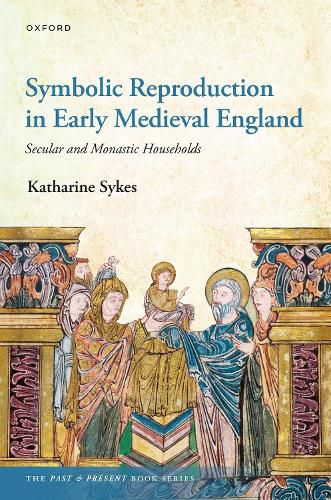Readings Newsletter
Become a Readings Member to make your shopping experience even easier.
Sign in or sign up for free!
You’re not far away from qualifying for FREE standard shipping within Australia
You’ve qualified for FREE standard shipping within Australia
The cart is loading…






In the early Middle Ages, the conversion of the early English kingdoms acted as a catalyst for significant social and cultural change. One of the most visible of these changes was the introduction of a new type of household: the monastic household. These reproduced through education and training, rather than biological means; their inhabitants practised celibacy as a lifelong state, rather than as a stage in the life course. Because monastic households depended on secular households to produce the next generation of recruits, previous studies have tended to view them as more mutable than their secular counterparts, which are implicitly regarded as natural and ahistorical. Katharine Sykes charts some of the significant changes to the structure of households between the seventh to eleventh centuries, as ideas of spiritual, non-biological reproduction first fostered in monastic households were adopted in royal households in the tenth and eleventh centuries, and as ideas about kinship that were generated in secular households, such as the relationship between genealogy and inheritance, were picked up and applied by their monastic counterparts. In place of binary divisions between secular and monastic, biological and spiritual, real and imagined, Sykes demonstrates that different forms of kinship and reproduction in this period were intimately linked.
$9.00 standard shipping within Australia
FREE standard shipping within Australia for orders over $100.00
Express & International shipping calculated at checkout
In the early Middle Ages, the conversion of the early English kingdoms acted as a catalyst for significant social and cultural change. One of the most visible of these changes was the introduction of a new type of household: the monastic household. These reproduced through education and training, rather than biological means; their inhabitants practised celibacy as a lifelong state, rather than as a stage in the life course. Because monastic households depended on secular households to produce the next generation of recruits, previous studies have tended to view them as more mutable than their secular counterparts, which are implicitly regarded as natural and ahistorical. Katharine Sykes charts some of the significant changes to the structure of households between the seventh to eleventh centuries, as ideas of spiritual, non-biological reproduction first fostered in monastic households were adopted in royal households in the tenth and eleventh centuries, and as ideas about kinship that were generated in secular households, such as the relationship between genealogy and inheritance, were picked up and applied by their monastic counterparts. In place of binary divisions between secular and monastic, biological and spiritual, real and imagined, Sykes demonstrates that different forms of kinship and reproduction in this period were intimately linked.